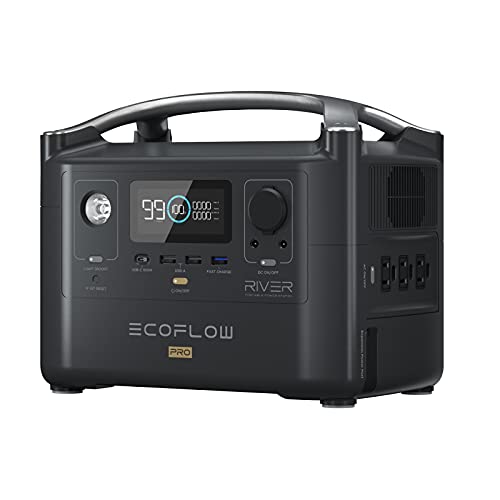Gone are the days when portable power was a nice-to-have. Today, it has become a must-have, be it for off-grid adventures, working remotely, or as an emergency backup. Portable power stations like the Jackery Explorer 1000 Plus and the EcoFlow River Pro have carved a niche by combining portability with robust power. But which one should you invest your hard-earned cash in? Let’s break down their features side by side to help you decide.
Design and Portability
Right out of the gate, one notices the design and build differences. The Jackery Explorer 1000 Plus is chunkier with more heft, reflecting its higher capacity. On the flip side, the EcoFlow River Pro is sleeker and substantially lighter—almost half the weight, making it a potential favorite for those who prioritize portability.
Power Capacity and Output
The meat of the matter lies in power capacity and output. The Explorer 1000 Plus outshines with a whopping 1264Wh and a peak output of 2000W. Meanwhile, the River Pro starts with a 720Wh battery and a rated output of 600W (with surge support up to 1200W), although it offers the flexibility to double its capacity with an extra battery.
Charging Options and Times
In today’s fast-paced world, charging times are critical. The Explorer 1000 Plus gets back to full charge in a snappy 1.7 hours via wall outlet, while the River Pro boasts even speedier charge times of 0-80% in just 1 hour thanks to the X-Stream Fast Charging technology.
Eco-Friendly and Safety Features
Safety and sustainability are key for any power solution. The Jackery uses safe and long-lasting LiFePO4 cells and is TÜV SÜD certified, ensuring not just user safety but also a lower environmental impact. The River Pro, while also safe, relies on more conventional lithium-ion cells.
Expandability and Connectivity
The expandability of the Explorer 1000 Plus to up to 5kWh with additional batteries beats the River Pro hands down. However, in the connectivity arena, both devices offer intelligent app-based control, with slight variations in the interface and features.
Ports and Accessories
Both the Jackery and EcoFlow come outfitted with a host of ports including USB-A, USB-C, AC outlets, and a DC carport, covering a wide array of charging needs for devices large and small.
Durability and Cycle Life
The Jackery Explorer 1000 Plus promises a staggering 4,000 charge cycles with a 10-year lifespan. In contrast, the River Pro guarantees 800+ cycles to 80% capacity, which is commendable but not as far-reaching as the Jackery’s longevity.
Head-to-Head Specification Table
| Specification | Jackery Explorer 1000 Plus | EcoFlow River Pro |
|---|---|---|
| Battery Capacity | 1264Wh | 720Wh (Expandable to 1440Wh) |
| Output | 2000W continuous | 600W (surge 1200W) |
| Cycle Life | 4000 cycles | 800+ cycles |
| Charge Time | 1.7 hours (wall) | 1 hour (fast charge) |
| Weight | 32lbs (14.5kg) | 16.8 lbs (7.6kg) |
| Expansion | Up to 5kWh | Doubles to 1440Wh |
| Charge Cycles | 4000 with 10-year lifespan | 800+ to 80% capacity |
| Smart Features | WiFi and Bluetooth App | Mobile App |
| Environmental Impact | Certified sustainable | Standard lithium-ion |
Conclusion
Ultimately, both the Jackery Explorer 1000 Plus and the EcoFlow River Pro shine in their respective rights. Your choice might boil down to whether you need the heftier capacity and robustness of the Jackery or the sleeker, more portable convenience of the River Pro. Whichever you choose, rest assured both offer the reliability and flexibility for a vast range of use cases.




Leave a Reply